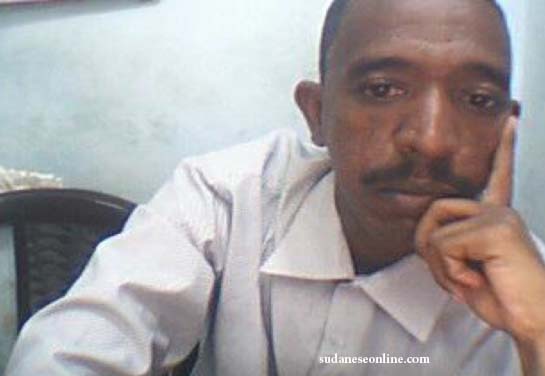| 09-11-2014, 01:44 PM |
Abdul-Aziz Ali Omer
 Abdul-Aziz Ali Omer Abdul-Aziz Ali Omer
Registered: 01-13-2014
Total Posts: 85
|
|
 The ordeal of a child from my country Abdul-Aziz Ali Omer The ordeal of a child from my country Abdul-Aziz Ali Omer
|
It is half past One A.M and so far I have resisted hunger with some coffee and salt of grief that will make my over-due meal bland. Anyhow, I have enough strength to quell hunger and to hold back tears over human tragedies in Sudan and around the globe. When the river Rhine floods the world, it cleanse it for a fresh life, however, once the Nile river floods the acacia and palm trees , there is man in the prime of his youth ejected by the shark that drained water from the artery. There was a young man who jumped from Al-fetaihab Bridge into the Nile River. From another bridge called Al.amk Nimir , a nice child stood on the verge of the bridge brooding over a suicide but fortunately the patrol of civil defense police intervened at the zero-hour to save him. Dr. Muhammad Ali Ibrahim, an ex-magistrate in child's court pointed out that there was a legislative hiatus concerning children rights in Sudan compared to other countries. He added that they put children into adult's jail and irritated with the prospect of their sexual abuse, they were sometimes impelled to separate them at night until the time of their trials. The preceding days witnessed more gruesome event that what the retired judge related. It was the death of a stray child named Adam while being in the custody of Family and Child Protection Unit. His ordeal began as the Civil Defense police arrested him while he attempted suicide by leaping out from Al-mak Nimir Bridge and handed him over to the Family and Child Protection Unit. First, their counselor investigated him to know the whereabouts of his family, the motives of his aborted suicide attempt but he just uttered his name: Adam. Then, in its turn, Inferred to him as psychologically disturbed and referred to Abdul Al вҖ“Idrisi hospital for an examination and the hospital administration turned him down on the ground that they don't deal with children psychological problems. After that painful rejection, he was referred again to Tijani Mahy psychiatric Hospital where he was shown the door again because of medical fees that amounted to 750 Sudanese pounds. The authority of the Family and Child Protection Unit demonstrated its financial incapacity so the child returned un-examined and transferred him to Police Hospital. Emergencies cannot wait so Colonel Fatheya Shabo administered to him a sedative drug. According to her diagnosis, his health condition was un-stable and seemed restless and hyperactive, however, he wasn't exposed to any medical check вҖ“up or health measures. Finally, the unidentified child returned with a deteriorated health condition and refused to eat and drink. One day, the imprisoned delinquents with him cried as they saw him falling dead. Then, he was transferred to the morgue for an autopsy on his body. His photo was not spread as part of tracing service to find his lost relatives.
Colonel Akod, the director of Family and Child Protection Unit said that they referred him to a medical Center which signed on the referral note but declined the treatment of child on the account that he wasn't one of those with special needs. What was required hadn't been a signature or showing a medical prejudice but an exceptional intervention from those medical bodies that had no qualm about the safety of child otherwise, they would have done something to improve his lot. He was the victim of beaucratic wrangling and lack of finances.
Amal Mahmoud, the trustee of childcare Council submitted a memo to the chief of Police in Khartoum State seeking an investigation in to the incident. She and many others from the media and child rights activists are looking forward to see the result of postmortem examination and the emergence of his family to get new facts. As for the public and official reactions, there was confirmation that the incidents represents stark illustration of lost psychiatric and social support to children, lack of juvenile penal justice and absence of mechanism for the referral of children contingencies and coordination between child-relevant bodies. .
|
|
   
|

|

|

|
|
|